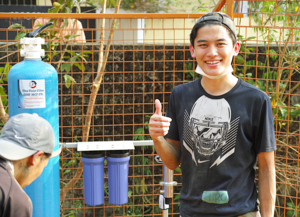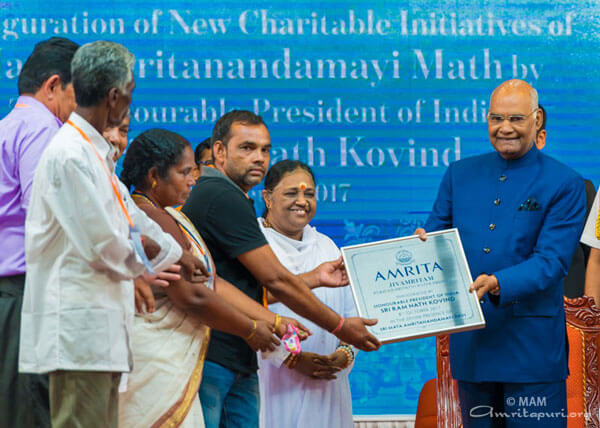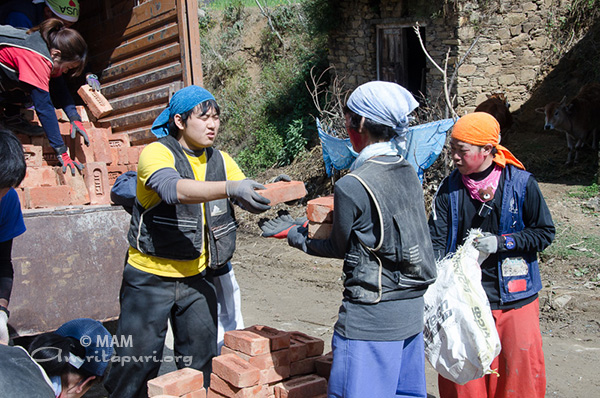Feb 2018, Alappuzha, Kerala
In order to help supply rural villages with clean drinking water, seventy-two students from Japan travelled to Alappuzha district of Kerala to help build water filters. Despite not receiving credit from their university, having to sacrifice their vacation time, and paying for their own travel expenses, students from the IVUSA program assisted the Jivamritam project in their effort to provide 5,000 villages with filters that each one can supply enough potable water for 400 five-member families with 20 litres of drinking water. These filters were installed these in 36 locations, spanning 11 panchayats in the Alappuzha
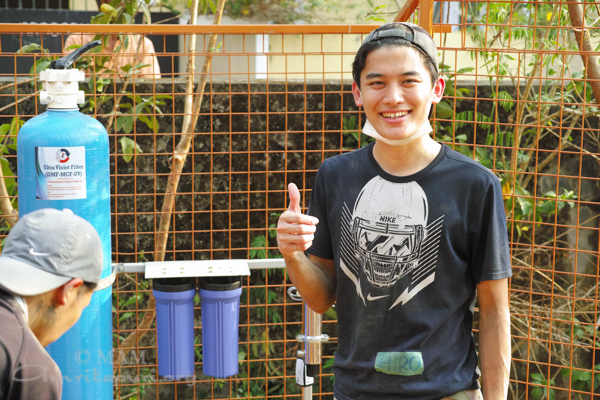
Ai Suzuki, first-year literature student of Tokyo University, after working on the Jivamritam filters for two weeks, said, “Life in India is very different from life in Japan. I ate curry and vegetables everyday, and I interacted with the local Indians in the process of making these water filters. In the end, we were able to install thirty-five water filters in an Indian village. It is my hope that this project will have a positive impact on the village not only today, but also for a decade or century to come.” Ai returned to the ashram after completing the project, where she received Amma’s darshan. “I was deeply impressed by Amma’s Darshan,” Ai said, “I want to be a woman like Amma who continues to give love to many people for a long time.”
Yoshinori Sato, a graduating student of Business Law at Toyo University also worked on the Jivamritam project. “I had a great time in India.” Yoshinori said. “The language, culture, and atmosphere touched my heart. I felt alive every day. I would wake up at sunrise, work, eat, and then go to sleep under the stars. It made me happy to know that people appreciated what I was doing. Their smiles made all of us happy. I think one smile creates another.”
Rao Hirata, a graduating student of Science and Technology from Ritsumeikan University said of the project, “Making the filtration systems was a little difficult for me at first, but the Amrita staff taught me how to make them, and, in the process, taught me how great of a benefit these filters are for the villages that receive them. These systems will provide enough clean water for 400 families each. If we can help supply clean water, we can reduce the possibility of getting sick and allow so many people to live healthily. This knowledge allowed me to tackle the project with a sense of purpose. My time spent in India has become an unforgettable memory.”
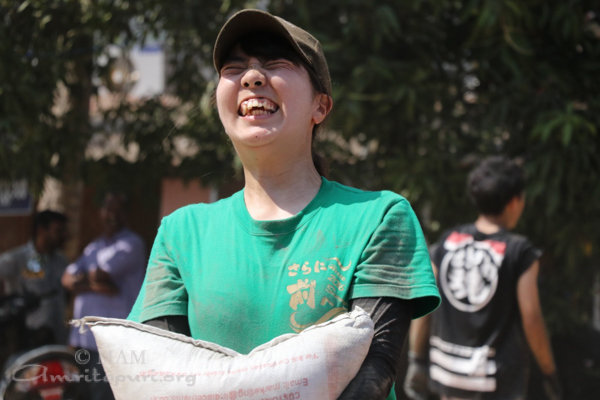
Haha Nonaka, a second-year university student from Gunma Women’s Prefectural University also worked on the Jivamritam project. “We were divided into the group that installed the drinking water filter.” Haha said. “I helped make the fence that surrounded a drinking water filtration filter when we were working in the factory. I painted the iron of the fence. Once in the village though, we made a base with cement and installed the fence and filter. I performed both activities side by side with local people from the village and the Amrita staff. Even if the languages were different, there was a deep mutual understanding conveyed through gestures and actions. I had the thanks and smiles of the villagers after installing the filter. It was the moment when I finally felt I was connecting India and Japan.”
Yurina Kameda, a second-year law student from Toyo University said, “After finishing this project, I understood how important clean water is. In Japan, clean water is readily available. This project has helped me understand how grateful I should be for having access to clean water.”
All the students came down to Bangalore to meet Amma, where they presented an energetic dance while Amma was giving darshan during the Brahmasthanam Festival celebrations. Amma compassionately allowed them to take picture with her. Before heading back to Japan, all the students were gathered together and shouted, with big smiles on their faces, “Friendship between India and Japan lasts forever!!!”
-Dass

